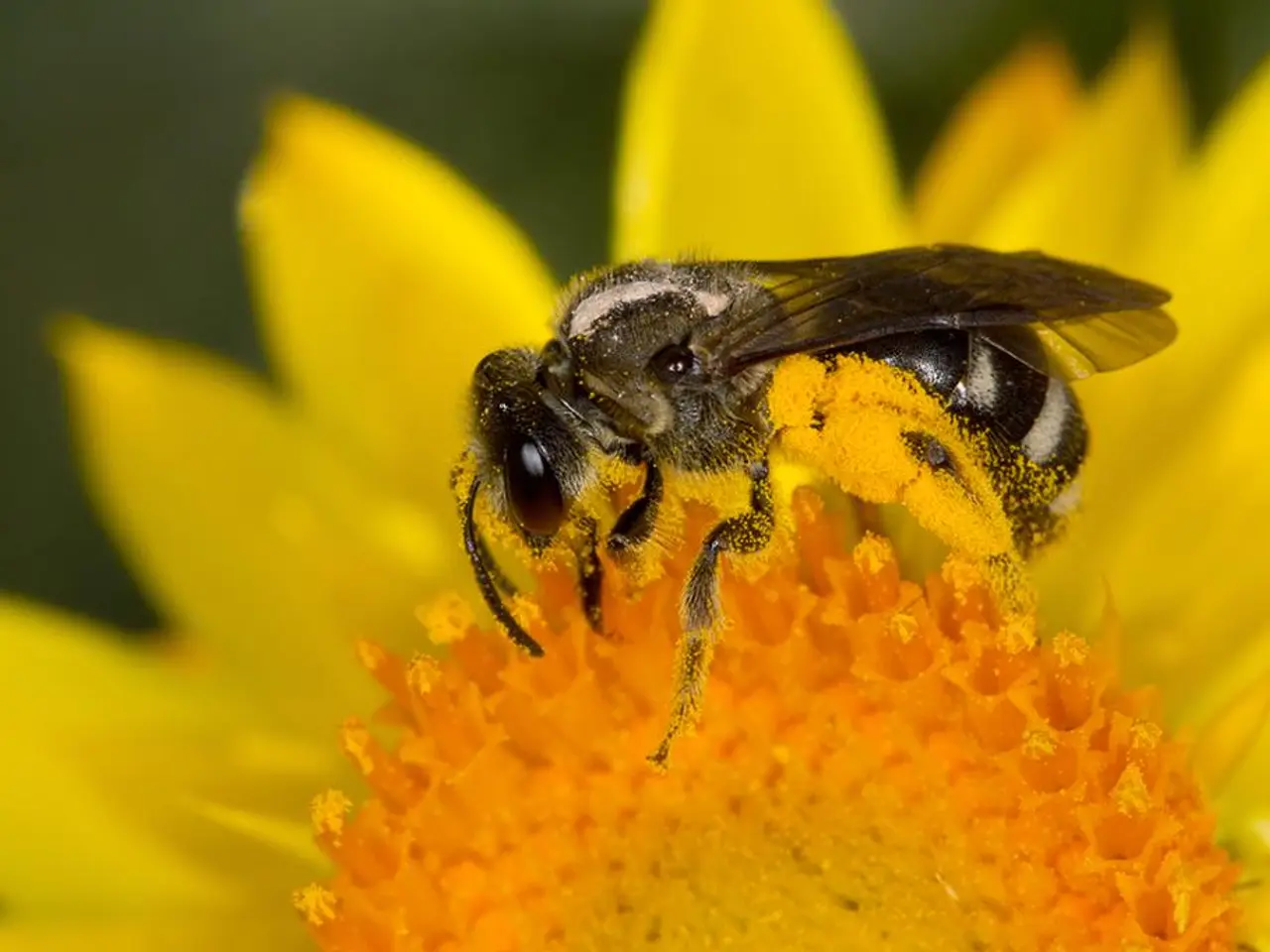Nation currently in emergency situation.
In Colombia, a yellow fever outbreak has been causing concern since its declaration as a nationwide health emergency in 2025. This viral infection, transmitted primarily by Aedes and Haemagogus mosquitoes, has spread beyond traditional risk areas, posing a threat to more communities.
The outbreak, linked in part to monkey deaths and environmental factors such as fragmented tropical forests, deforestation, and climate change, has resulted in at least 114 confirmed human cases and 49 deaths between 2024 and mid-2025. Notably, the Tolima department and high-altitude areas of the Andes have been affected, regions previously considered low risk.
As of mid-2025, the Tolima department is the most affected, with an elevated fatality rate of approximately 43%. The outbreak has also spread to multiple rural municipalities and previously low-risk regions. The Pan American Health Organization has issued warnings due to this severe outbreak, with around 320 reported regional cases and a high fatality ratio among confirmed infections.
For travelers visiting Colombia, particularly those going to endemic or high-risk areas such as Tolima, the Amazon basin, and the Magdalena River region, vaccination against yellow fever is strongly recommended. The YF-VAX vaccine is available in Colombia and certified travel clinics outside the country. Additionally, travelers should use mosquito bite prevention measures, including repellents, protective clothing, and staying in screened or air-conditioned accommodations.
President Gustavo Petro has declared an economic emergency due to the outbreak, blaming climate change for the spread of the yellow fever virus. Unvaccinated people are advised not to stay in risk areas over Easter, including the coffee-growing region in the center of the country. The mortality rate of yellow fever cases in the country is almost 50 percent, leading to the declaration of a state of emergency.
President Petro has called on his fellow citizens to get vaccinated against yellow fever, and vaccination certificates will now be checked upon entry and exit due to the increase in yellow fever infections in Colombia. The number of confirmed yellow fever cases in the coffee-growing region of Tolima has increased from four in September to 22 by mid-April, underscoring the need for vigilance and precautions.
- Economic and social policy discussions in Colombia have been increasingly centered around the yellow fever outbreak, considering its impact on the nation.
- The outbreak's link with science, especially medical-conditions like chronic diseases, has become a critical focus for researchers worldwide.
- Workplace-wellness programs are being re-evaluated to include information on yellow fever, given its potential to affect employees.
- The spread of yellow fever has also been associated with respiratory conditions, as some research suggests a link between viral infections and respiratory complications.
- As the yellow fever outbreak progresses, concerns about digestive-health issues have arisen, with some studies indicating potential gastrointestinal symptoms in affected individuals.
- Eye-health professionals are monitoring the outbreak closely, as viral infections can sometimes lead to eye problems.
- The hearing community is also on alert, as some viral infections can potentially affect the auditory system.
- The yellow fever outbreak highlights the critical importance of health-and-wellness education and awareness in preventing such outbreaks.
- Fitness-and-exercise routines can boost the immune system, potentially reducing the risk of contracting yellow fever or other viral infections.
- Sexual health is another aspect under scrutiny, as viral infections can sometimes be sexually transmitted, potentially contributing to the spread of yellow fever.
- Autoimmune disorders, which weaken the immune system, may increase the risk of contracting yellow fever, making it crucial for those with such conditions to take extra precautions.
- Climate change, a significant factor in the yellow fever outbreak, is a topic of discussion in environmental-science and climate-change research.
- The outbreak's impact on manufacturing industries is being assessed, as efforts to combat the disease may affect production and supply chains.
- Mental-health professionals are preparing to support those dealing with anxiety or stress related to the yellow fever outbreak.
- Mens-health organizations are advising men to get vaccinated and take necessary precautions, given their increased risk of severe complications from yellow fever.
- Skin-care products are being developed to help prevent mosquito bites, offering an additional layer of protection against yellow fever.
- Therapies-and-treatments for yellow fever are under investigation, with the hope of developing more effective and accessible interventions.
- Nutrition plays a role in boosting the immune system, making it essential for individuals to maintain a balanced diet during the outbreak.
- As people age, their immune systems may weaken, increasing their vulnerability to yellow fever.
- Womens-health organizations are providing information and resources to pregnant women and new mothers, ensuring they are aware of the risks and precautions needed.
- Parenting advice now includes yellow fever prevention strategies, as children are often more susceptible to viral infections.
- Weight-management programs are being revised to address the potential impact of obesity on the risk and severity of yellow fever.
- Cardiovascular-health is another critical aspect, as good heart health can support the body's overall ability to fight off infections.
- The electronics industry (industry) is developing smart gadgets and smartphones with built-in mosquito repellent features to help prevent yellow fever.
- Finance professionals are advising clients on yellow fever's potential impact on Medicaid (medicare) and other health insurance coverage.
- CBD products are being researched for their potential role in boosting the immune system and combating yellow fever.
- Neurological-disorders, such as those affecting the brain and nervous system, can potentially increase the risk of severe yellow fever complications.
- The yellow fever outbreak has sparked discussions about leadership and leadership styles in managing such public health crises.
- Diversity-and-inclusion initiatives in small-business, entrepreneurship, retail, transportation, financial, and technological sectors are emphasizing the importance of addressing the needs and concerns of all community members during a crisis like this.




